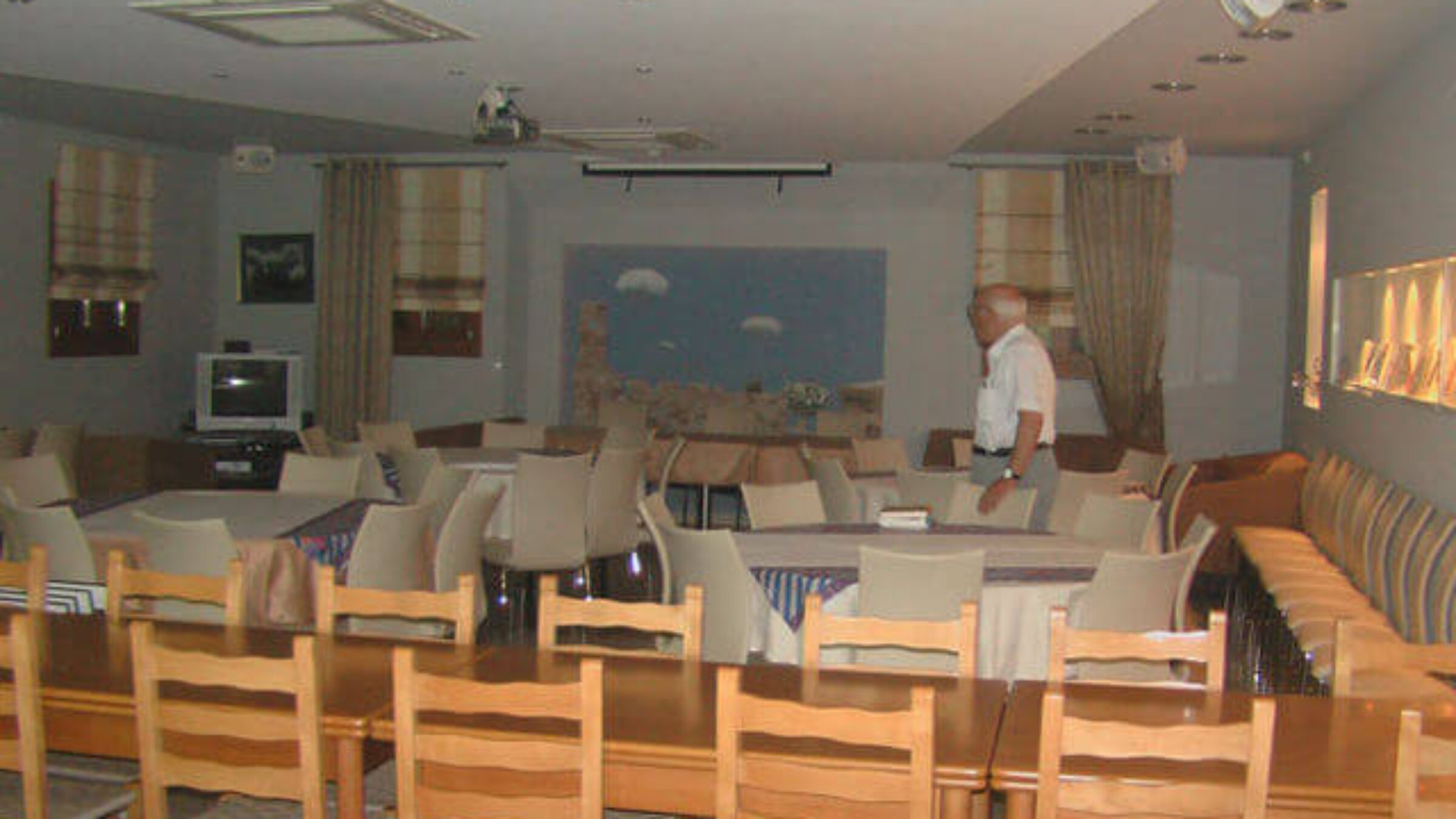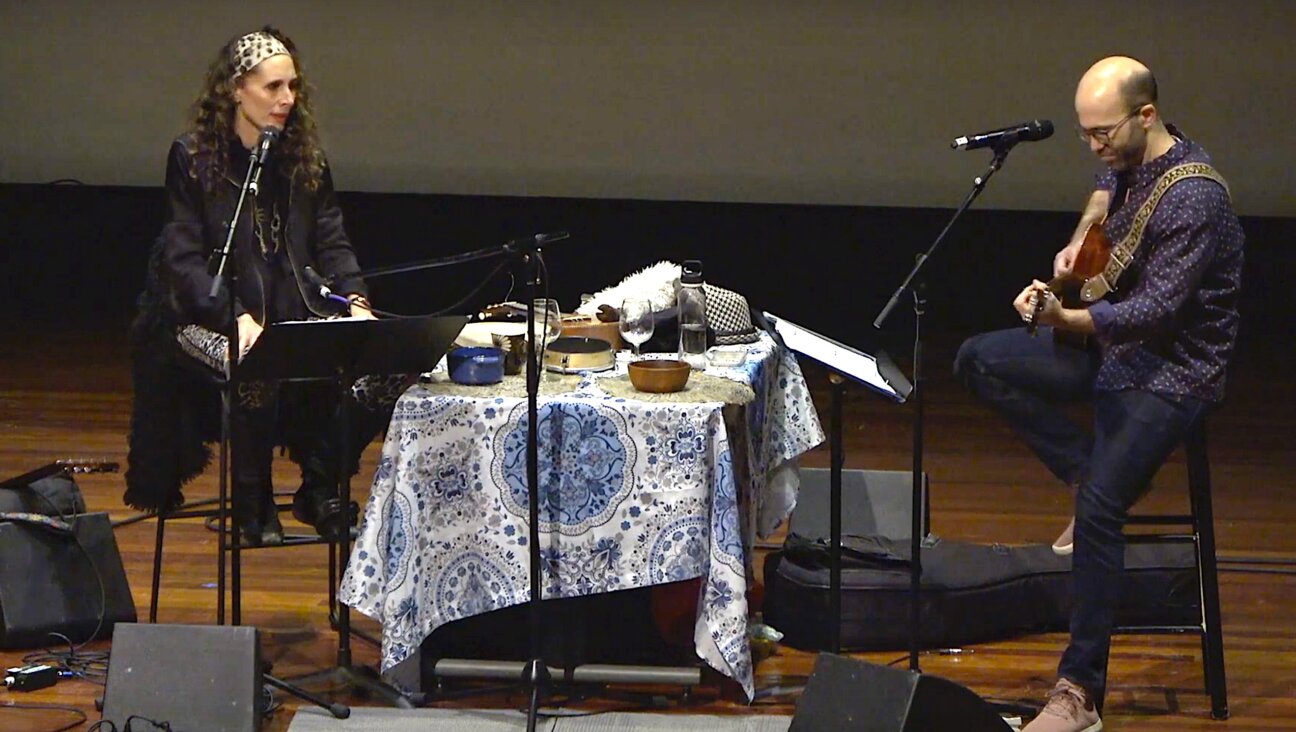‘Feodor Dostoyevsky and Sholem Aleichem’ (a delightful example of Yiddish humor)
The late Forverts humorist Abraham Shulman describes what happened when almost no one showed up to one of his lectures.

Photo by Wikimedia Commons
This story, by the late Forverts humorist Abraham Shulman, originally appeared in his book, “Adventures of a Yiddish Lecturer” – a witty account of his tours around the country, giving talks about Yiddish culture to synagogues and Jewish centers. The stories describe with delicious irony the various odd characters and often ludicrous conditions that he encountered at these events (Ed.)
Although the book is out of print, used copies can be purchased here.
‘Feodor Dostoyevsky and Sholem Aleykhem’
Despite all the publicity and mailed invitations, the hall where I was to give my lecture was empty. The chairman was there, the secretary was there, and so was the treasurer who had set up a little table at the door to collect the entrance fee—but there was almost nobody to collect from. It was neither too hot nor too cold, nor was it raining or snowing. So the weather was no excuse. Was it the subject? I was to lecture on “Feodor Mikhaylovitch Dostoyevsky — his life and works,” and I knew from previous experience that this always draws a crowd. But for whatever reason, the hall was practically empty and the room looked like the epilogue of Ionesco’s play “The Chairs.” This was all I could see from my honorary seat in the praesidium — a sea of chairs.
When it became evident that nobody else would arrive, the chairman told the treasurer to fold up his improvised ticket office; he then signaled me to get up to the mike and start delivering the speech. I got up and faced the chairs that had been prepared for the public with such loving care. But the public consisted of half a dozen men and women who sat crowded together like abandoned sheep.
The secretary shared my feeling of dejection. Before I opened my lips, I heard him say to the chairman:
“Mr. Tsimring, there’s another person in the building, Mrs. Zaydenbaytel. Shall I tell her to come in?”
“Where is she?” asked the chairman.
“In the library. I saw her there before I came in. Shall I go and fetch her?”
The chairman’s voice was soaked in irony: “You ask if you should? Go there this minute and bring her in.” And to me he said: “Let’s wait another moment till Mrs. Zaydenbaytel comes.”
The secretary sprightly left the room, but a minute later came back alone.
“She doesn’t want to come,” he reported.
“Doesn’t want — what?”
“To come.”
“Why not?”
“She’s in the middle of a book.”
The chairman’s voice became harsh: “You told her the subject of the lecture?”
“Feodor Mikhaylovitch Dostoyevsky — his life and works. I also told her the name of the lecturer.”
“And what was her reaction?”
“Her reaction was nothing. She wants to stay where she is.”
The chairman, Mr. Tsimring, who despite his white hair had a pitch-black moustache, banged on the table again: “What book is she reading?”
“Collected stories of Shalom Aleykhem.”
“Go tell her that she can read the book after the lecture is over. She can take the book home. Or we can give her the book as a present. Right now she must fulfill her duties as a member and take part in our cultural activities.
Again, the secretary got up and left the room, which gave me another chance to go through the thesis of my lecture. A minute passed, the door opened and the secretary was back. Alone. Without Mrs. Zaydenbaytel.
“Nu?” asked the chairman.
“Nu-nu,” replied the secretary.
“She isn’t coming?”
“No.”
“Why?”
“She wants to read.”
“Did you tell her that we’re all waiting?”
“You can’t argue with Mrs. Zaydenbaytel. She’s an obstinate woman.”
“Maybe it’s because of the dollar that we charge?”
“I told her that we’d let her in free.”
“And?”
“And nothing.”
The chairman turned to the treasurer: “Mr. Baygelman, you shall go with the secretary and help him bring Mrs. Zaydenbaytel. Don’t come back without her.”
He said it in a menacing voice. The two gentlemen got up and left the room. This gave me another opportunity to run through my notes about Dostoyevsky.
Two minutes later the door opened with a loud bang. Mrs. Zaydenbaytel, a massive woman, was brought in by the secretary and the treasurer, both tightly holding on to her elbows. Together they looked like the two gangsters and Herr K. from the final scene in Kafka’s “The Trial.” Mrs. Zaydenbaytel was carrying a large book and as soon as she was dragged by her escorts to the nearest chair, she opened the book and began to read.
The chairman turned towards me: “Mr. Shulman, you may begin.”
I did. But it appeared that this wasn’t the end of my predicament. For while I was talking on the life and works of Feodor Mikhaylovitch, Mrs. Zaydenbaytel was reading her book and every few seconds burst out in gales of laughter. Once she must have come to a particularly funny paragraph, for she began roaring like a gorilla.
Thai was too much for the chairman. He gave me a sign to stop and addressed the lady: “Mrs. Zaydenbaytel,” he said, “you may, if you wish, go ahead with your reading but for God’s sake, you must stop this laughter.”
“Impossible,” replied Mrs. Zaydenbaytel, “you simply can’t read Shalom Aleykhem and keep your mouth shut.”
I was in the middle of telling the story of “Crime and Punishment,” describing how the student Raskolnikoff was murdering with his ax the old Alevna Ivanovna. I closed my eyes a moment and had a terrible vision: it was not Raskolnikoff but myself who was chopping off the head of Mrs. Zaydenbaytel.























